From hydrogen-fuelled planes to building on the moon, students made interesting discoveries at the IRIS Conferences this year
An impressive 639 young researchers from 59 secondary schools, sixth forms and colleges showcased their research to peers, teachers and the wider scientific community at the IRIS Conferences this year. From hydrogen fuelled travel to building on the moon, the future generation presented many exciting scientific discoveries.
The IRIS Student Conferences are a platform for fostering curiosity, celebrating the significant achievements of student researchers and showcasing the impact of research in schools. In addition to presenting their research, students gained insight into a wealth of research careers available to them, with keynote talks and panel discussions from young professionals in various stages of their careers.
Here’s what happened…
LONDON
Our biggest conference yet, we welcomed around 400 young researchers from 36 schools along with their teachers and the wider scientific community to Friends House in Euston.
With over a hundred research posters, students showcased their knowledge on a diverse range of topics, including the effects of greenhouse gases on bird migration, making building materials for the moon, hydrogen-powered flight, the real strength of our online passwords and finding evidence of the Higgs boson.
London in pictures:
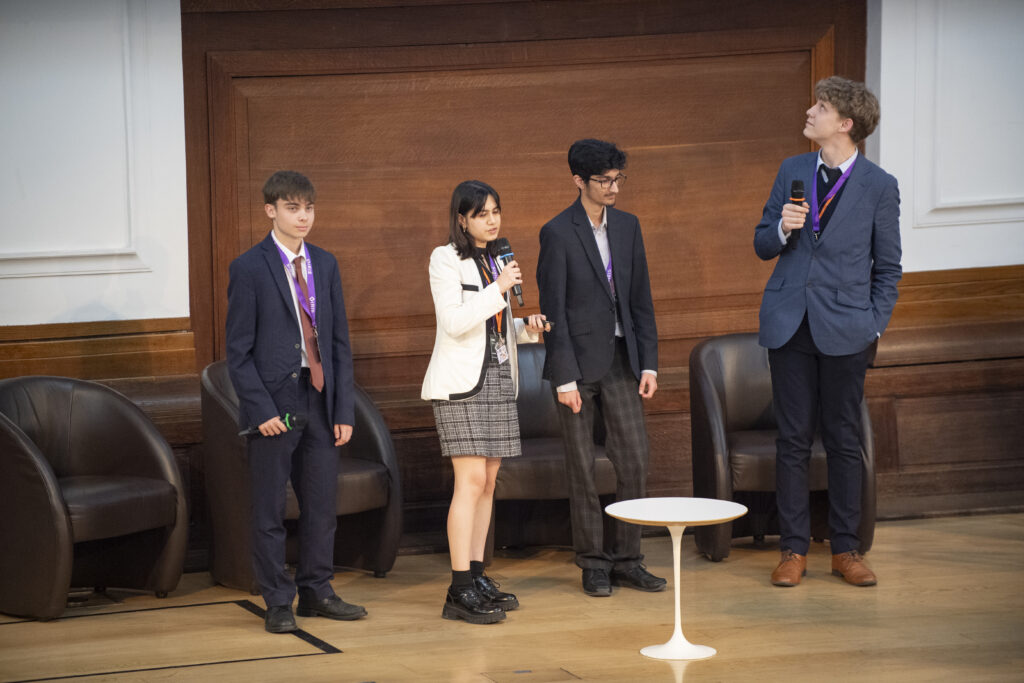 Highcrest Academy present their particle physics research looking at the Z and Higgs boson.
Highcrest Academy present their particle physics research looking at the Z and Higgs boson.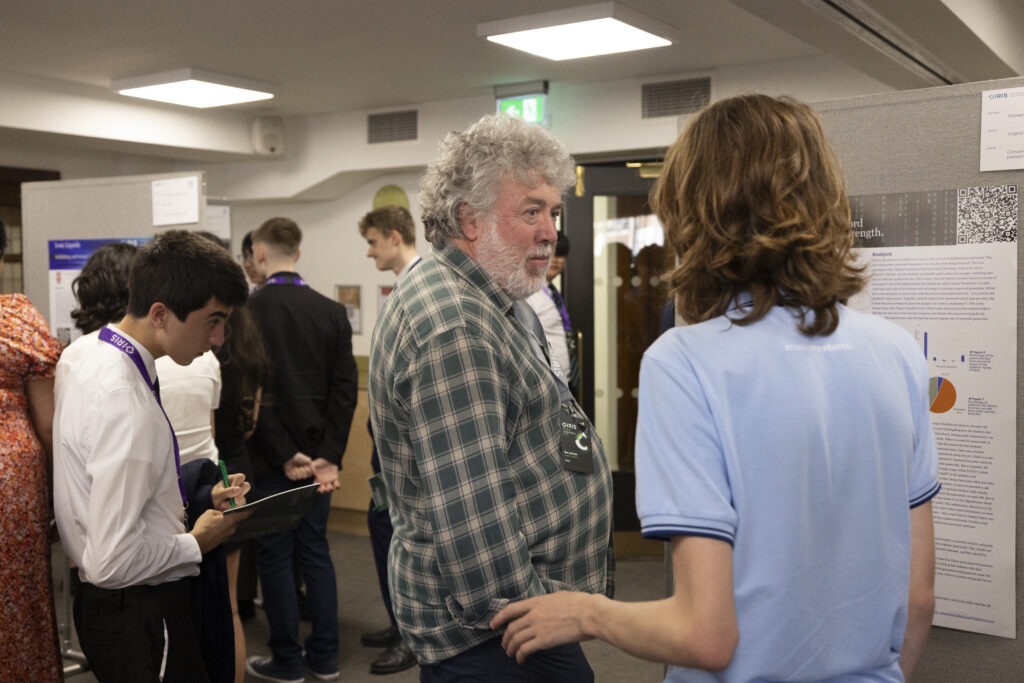 Joel, Fitzharrys School student, shares his research on password security with guest Ben Johnson.
Joel, Fitzharrys School student, shares his research on password security with guest Ben Johnson.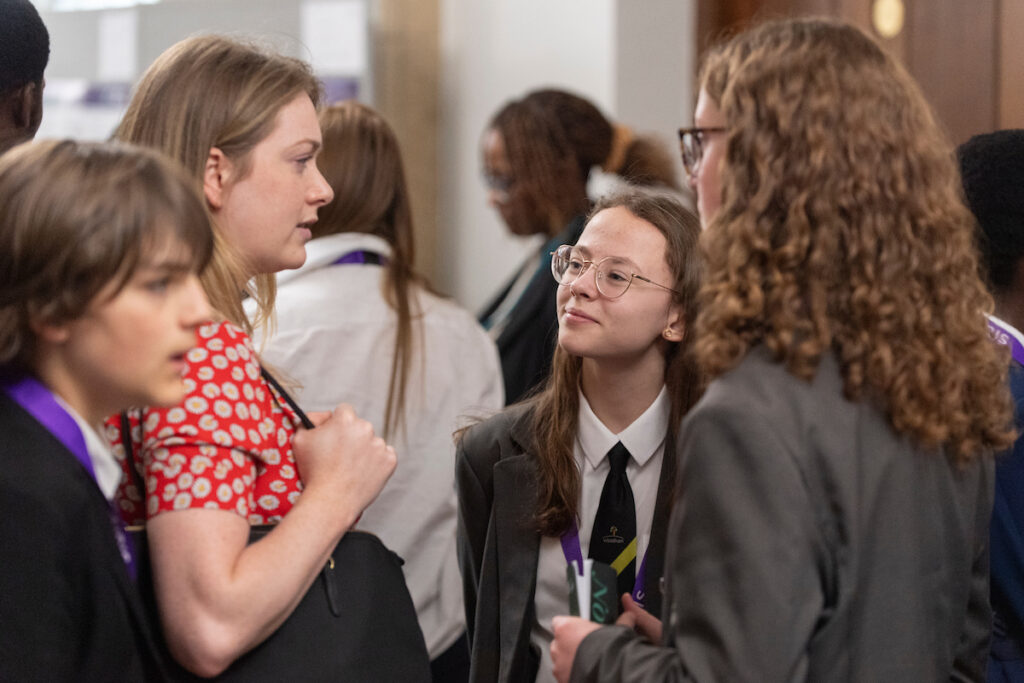 Georgina Leadley, brain imaging researcher at the University of Cambridge & Woodham Academy students.
Georgina Leadley, brain imaging researcher at the University of Cambridge & Woodham Academy students.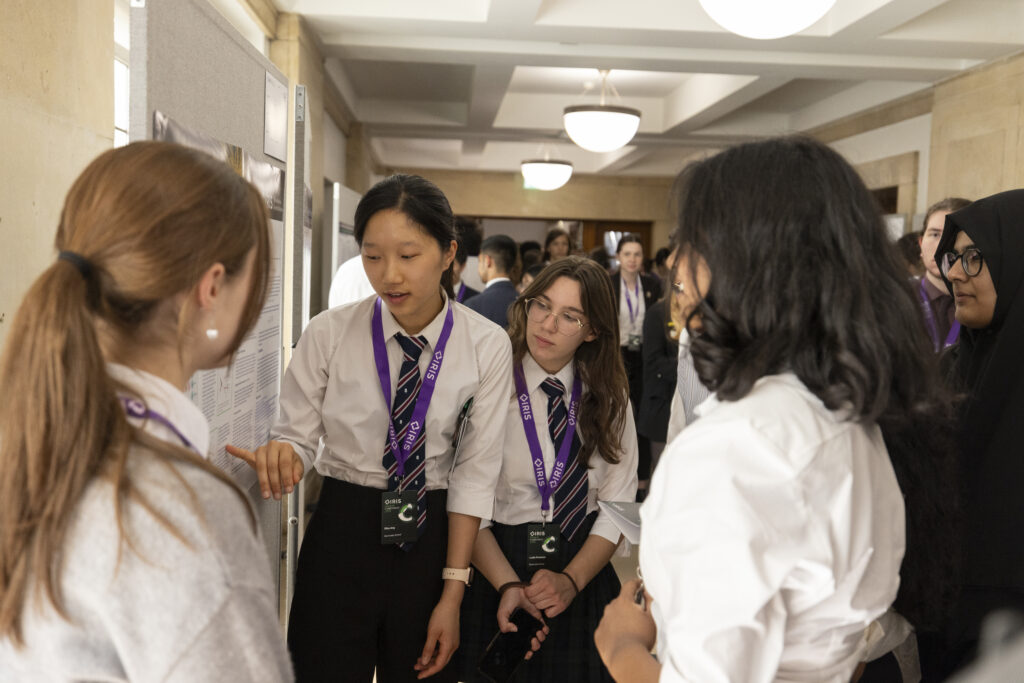 Young researchers from Sevenoaks School discuss their particle physics work investigating ATLAS data.
Young researchers from Sevenoaks School discuss their particle physics work investigating ATLAS data.MANCHESTER
More than 200 young researchers from the North, Midlands and Northern Ireland travelled to the King’s House Conference Centre to share their research and learn more about careers in biology, biopharmaceuticals and green aviation.
The bright young students presented their research, sharing their new-found knowledge on diatom dioramas, encouraging tooth regrowth, Motoer neurone disease, DNA structures for viral agglutination, stellar objects and much more.
Manchester in images:
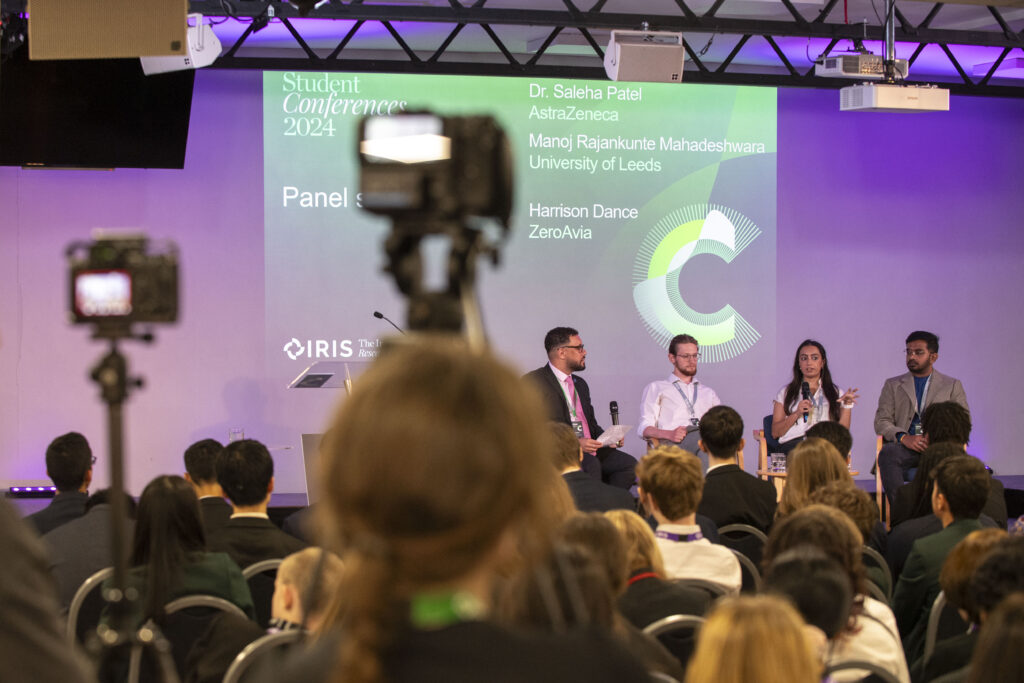 Marcus Bernard leads a panel discussion with Harrison Dance, Dr Saleha Patel & Manoj Rajankunte Mahadeshwara.
Marcus Bernard leads a panel discussion with Harrison Dance, Dr Saleha Patel & Manoj Rajankunte Mahadeshwara.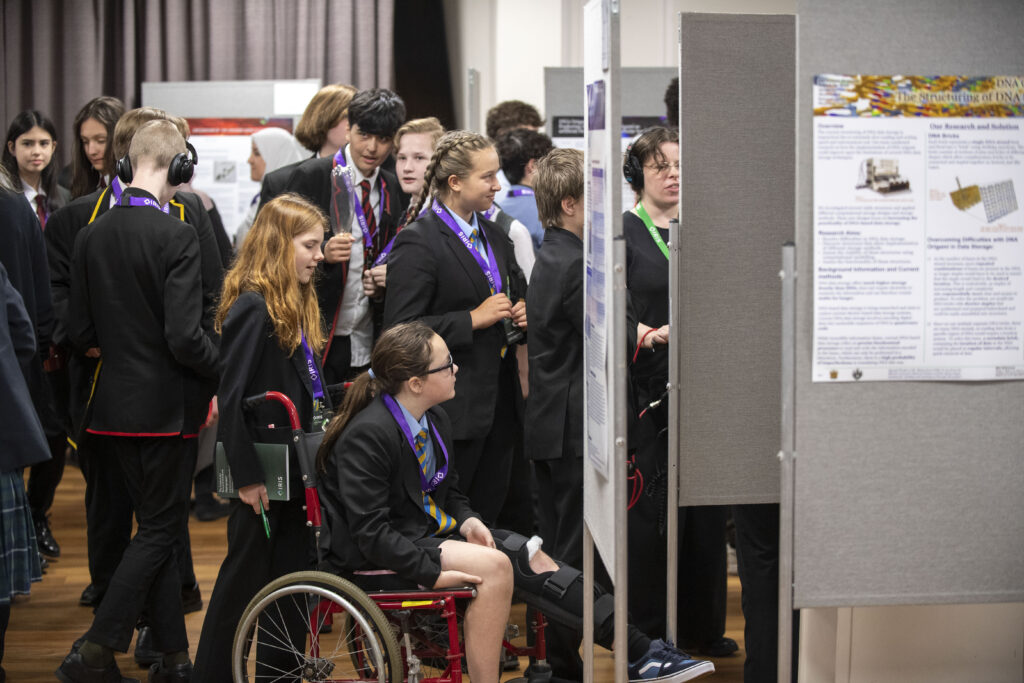 Students from St Wilfrid’s Catholic High School & Sixth Form College share their findings during the poster session.
Students from St Wilfrid’s Catholic High School & Sixth Form College share their findings during the poster session.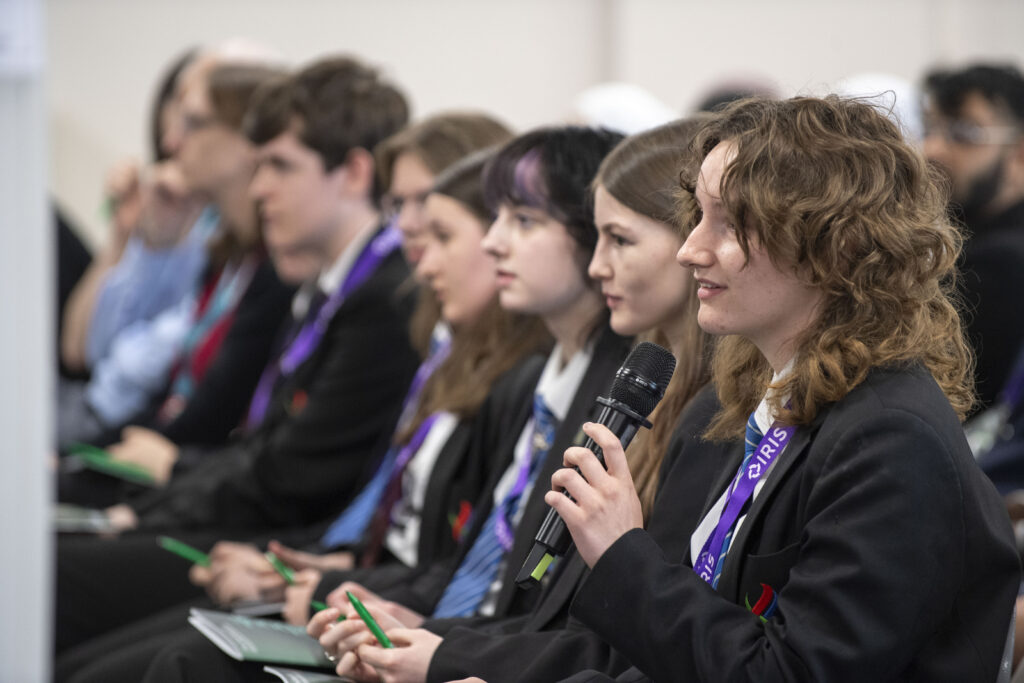 Audience participation, Forge Valley School student questions the presenting school about their particle physics research.
Audience participation, Forge Valley School student questions the presenting school about their particle physics research.
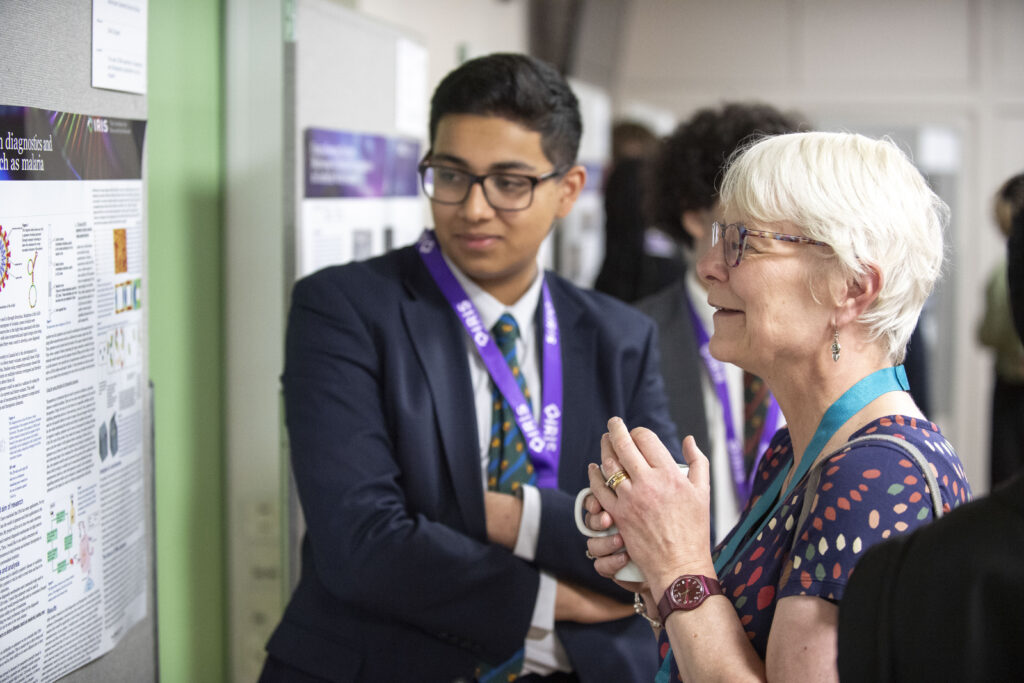 A student from Altrincham Grammar School for Boys discusses his DNA Origami research with a teacher.
A student from Altrincham Grammar School for Boys discusses his DNA Origami research with a teacher.EXETER
Nearly 100 school, sixth form and college students, their teachers and coach drivers travelled from across the Southwest and Guernsey to the Future Skills Centre to share their research.
From the antibacterial benefits of saltwater to genetically modified corn, the students’ research illustrated their concerns about the environment and their determination to innovate for a brighter future. Young researchers presented their findings on hydrogen fuelled planes, the presence of genetically modified crops in UK foods and our favourite subject – penguins!
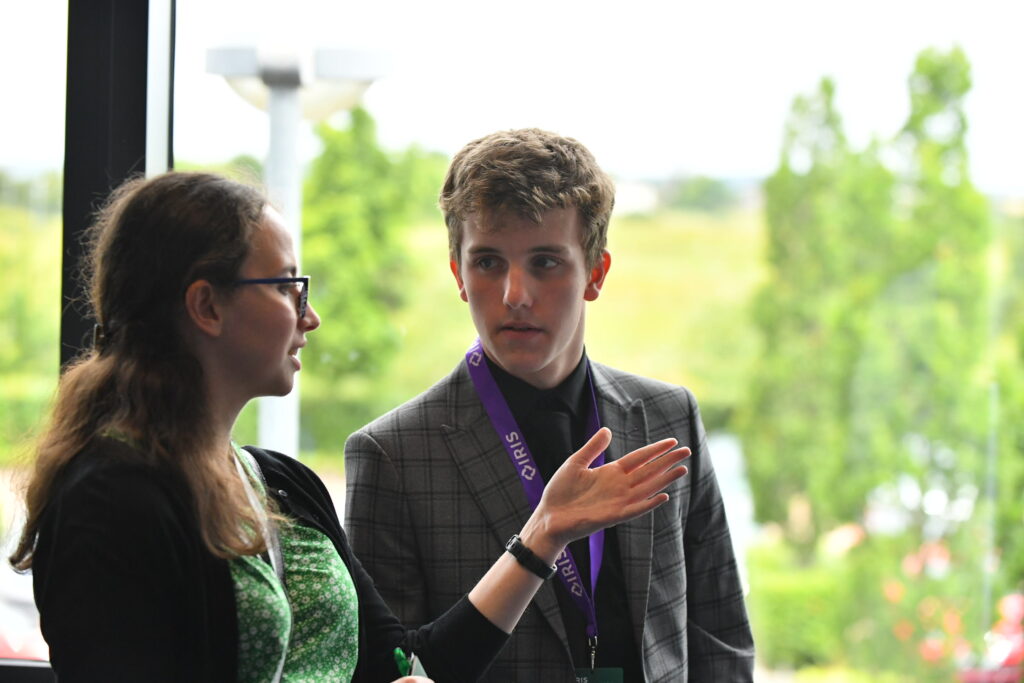 Dr Rosie Brown with a student from Camborne Science and International Academy.
Dr Rosie Brown with a student from Camborne Science and International Academy.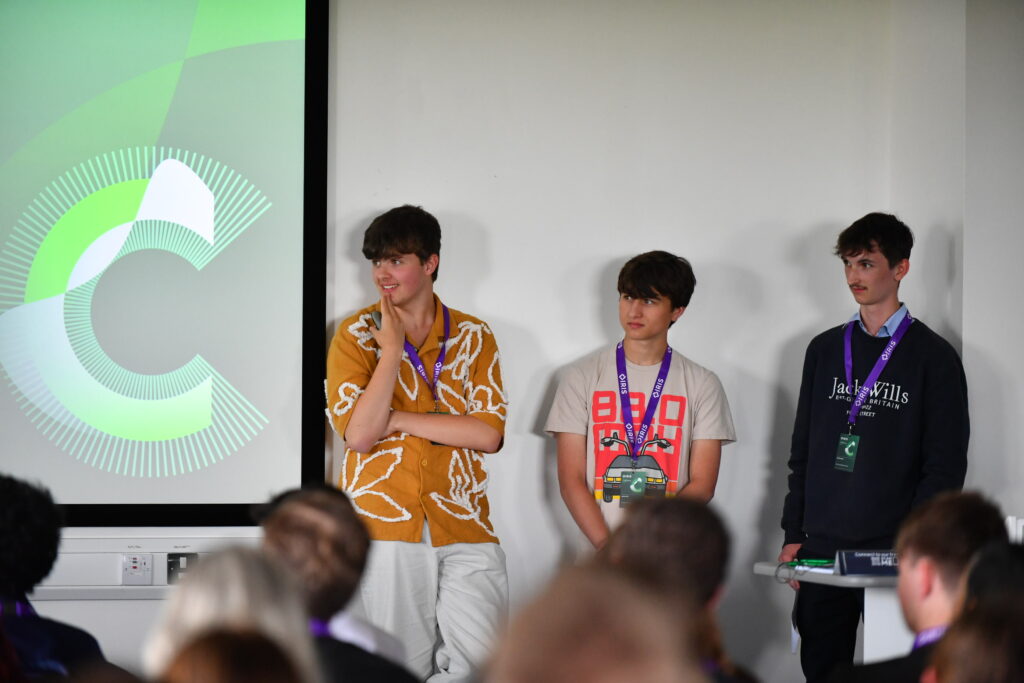 Thomas Hardye School students share their findings from their genetically modified corn research.
Thomas Hardye School students share their findings from their genetically modified corn research. 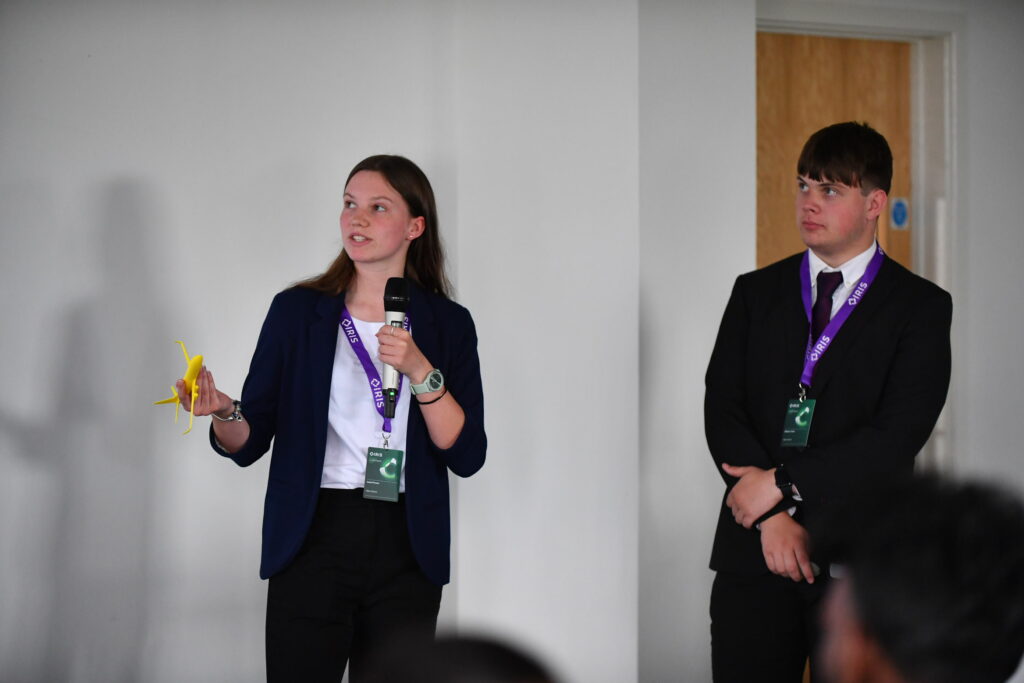 Hele’s School students present their research on hydrogen-fuelled air travel in Indonesia.
Hele’s School students present their research on hydrogen-fuelled air travel in Indonesia.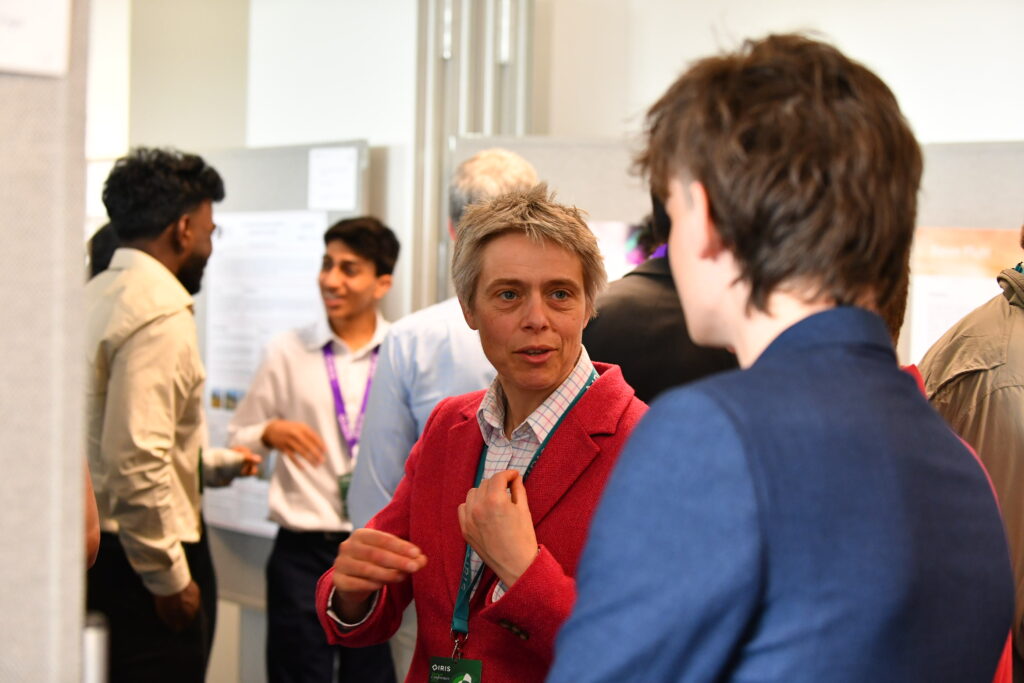 Hazel Bridges, physics teacher at Cirencester College, with student researcher.
Hazel Bridges, physics teacher at Cirencester College, with student researcher.